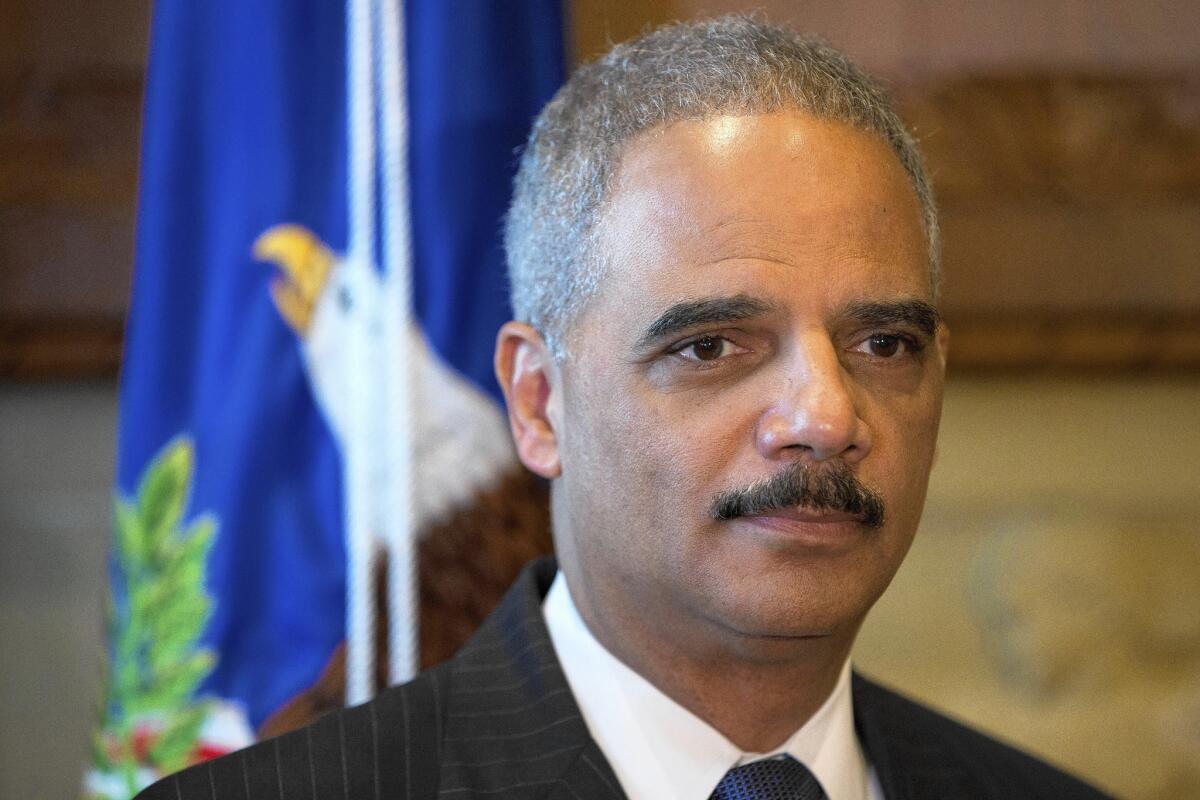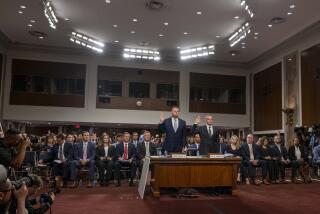FBI and other federal agents must now tape interviews with suspects

Law enforcement officials from the FBI and other federal agencies, who for decades have jotted down confessions and statements from accused bootleggers, terrorists and others, soon will turn to video cameras and other electronic equipment.
Under a new policy announced Thursday by Atty. Gen. Eric H. Holder Jr., federal agents investigating drug and gun crimes, as well as the U.S. Marshals Service and the FBI, will videotape or audiotape suspects starting July 11. The interviews will be recorded between the arrest and first appearance in federal court.
For years, FBI agents have been criticized by defense lawyers in criminal trials for testifying about interviews based on recollections gleaned from scribbled notes.
That practice was sharply challenged this month by defense lawyers for accused Boston Marathon bomber Dzhokhar Tsarnaev, who was quizzed for hours by agents after his capture last year. Partly because of that process, Tsarnaev’s lawyers have asked a federal judge to throw out everything he said before the case goes to trial in November.
Holder acknowledged that bringing FBI agents and other federal officers into the modern world would boost law enforcement’s credibility.
“Creating an electronic record will ensure that we have an objective account of key investigations and interactions with people who are held in federal custody,” he said. “It will allow us to document that detained individuals are afforded their constitutionally protected rights.”
Equally important, he said, the new policy will be a “backstop” to ensure that federal agents have “clear and indisputable records of important statements and confessions made by individuals who have been detained.”
Most state and local police departments have been recording suspects for decades, some as far back as the 1940s.
The practice was also embraced by Barack Obama when he was an Illinois state senator in the late 1990s and early 2000s. He championed a bill to require the videotaping of suspects. At the time, many police supervisors and police union leaders resisted the change. But they later came to like the new technology after realizing, to their surprise, that cameras and microphones did not scare suspects into not cooperating.
Although the new policy was announced Thursday, Deputy Atty. Gen. James M. Cole signed the directive May 12, when he also informed top federal prosecutors in a conference call.
The rules call for videotaping, but if cameras are not available, agents can audiotape their interviews, Cole told the prosecutors. “Electronic recording will begin as soon as the subject enters the interview area or room and will continue until the interview is completed,” the rules state.
However, sometimes hidden cameras can be used. In cases in which agents are eager to talk to suspects because of pressing public safety concerns, the interviews can still be done without electronics. And cameras and tape recorders will not be used if a suspect says he will talk “only if it’s not electronically recorded.”
Holder announced the policy in a video message. The recordings, he said, will soon be “building trust and fostering community engagement” in law enforcement operations.
More to Read
Sign up for Essential California
The most important California stories and recommendations in your inbox every morning.
You may occasionally receive promotional content from the Los Angeles Times.











